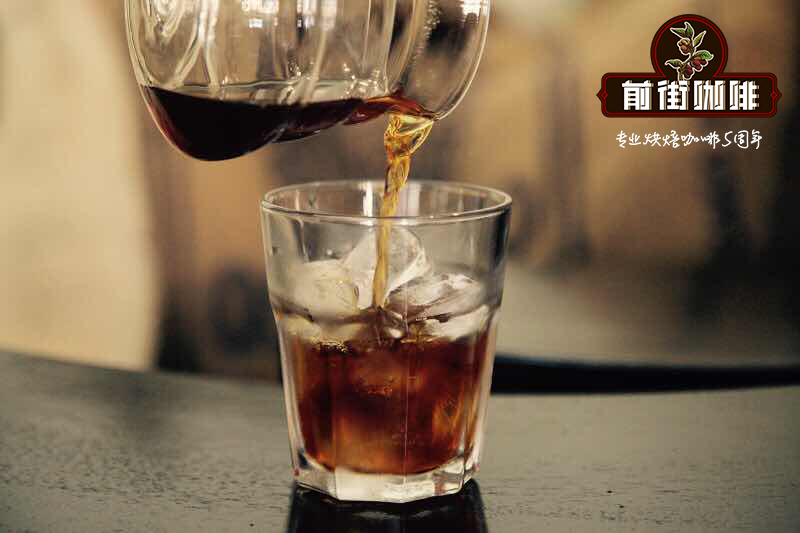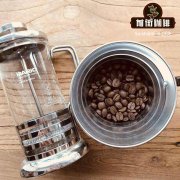Is it true that Jamaica Mavis Bank Blue Mountain Coffee NO.1? A cup of authentic Blue Mountain Coffee in Front Street

Professional coffee knowledge exchange more coffee bean information please follow the coffee workshop (Wechat official account cafe_style)
Is it true that Jamaica Mavis Bank Blue Mountain Coffee NO.1? How much is a cup of authentic Blue Mountain coffee in front of the street?
Front Street Jamaica Blue Mountain Coffee beans authentic BlueMount Blue Mountain NO.1 Coffee 100g roasted
Jamaica Mavis Bank Blue Mountain NO.1 beans, Mavis Bank is located about 10 miles northeast of the capital Kingston, is one of the raw bean processing plants certified by the Jamaican government. The Munn Family family has been operating since 1885, the MBCF trademark and its 100% Blue Mountain Coffee are famous all over the world, especially for their prudent raw bean handling procedures, elegant and delicate flavor, scented tea, sweetness and solid creamy feeling. The Blue Mountain legal coffee producing area in Jamaica is constantly shrouded in blue fog, so it is named "Blue Mountain".
Mavis Bank, located about 10 miles northeast of the capital Kingston, is one of the raw bean processing plants certified by the Jamaican government. The Munn Family family has been operating since 1885, the MBCF trademark and its 100% Blue Mountain Coffee are famous all over the world, especially for their prudent raw bean handling procedures, elegant and delicate flavor, scented tea, sweetness and solid creamy feeling. The Blue Mountain legal coffee producing area in Jamaica is constantly shrouded in blue fog, so it is named "Blue Mountain". Blue Mountains is located in eastern Jamaica, across 45 km, 20 km wide, up to 2260 meters above sea level, is the highest mountain range in the Caribbean.
The real Blue Mountain Coffee is one of the most advantageous coffee growing conditions in the world. The weather, geological structure and topography of Jamaica provide a unique ideal place. Designated Jamaican Blue Mountain Coffee can only be grown in the Blue Mountain area, in Kingston, Jamaica is in the eastern north of the island. Coffee grows on a mountain with a maximum height of 1800 meters (almost 6000 feet), which is already quite high for small-grain coffee, and the mountains are very uneven and the process of harvesting is very difficult (coffee harvesting is almost entirely female). The Blue Mountains are covered with fertile soil with excellent drainage, making it very suitable for coffee cultivation. Located in the legal Blue Mountains of Jamaica, Mavis Bank is also one of the raw bean processing plants certified by the Jamaican government, about 10 miles northeast of the capital Kingston, and has been operated by the Munn Family family since 1885.
Originally the Moon family planted and processed the harvested coffee cherries on Strawberry Hill on the west side of the Blue Mountain. The present-day Mavis Bank processing plant was founded by Victor Munn in 1920 and then run by Victor's nephew, Keble Munn. Keble is not only an agricultural operator, but also the first certified cup tester in Jamaica.
Mavis Bank is already the largest coffee gathering place in Jamaica, and in order to ensure coffee quality, the processing plant collects raw beans from single farms or small farmers in specific areas of the Blue Mountains. The coffee planting and processing area is located in the mountain area with an average of 1600 to 900m, with sufficient altitude, mild afternoon cloud shade, sufficient sunshine and mineral-rich planting soil to provide good growth conditions for coffee trees and prolong the ripening of coffee cherries. In the raw bean treatment stage, only ripe red fruit is harvested, and then manual selection and floating fruit elimination procedure is the basic condition. Farmers send the remaining coffee cherries to another washing station, and then carry out the second selection, and remove the flesh before the evening.
Then carefully sift out any overfermented, unripe or worm-eaten cherries in a large tank before pectin removal. After the pectin is removed, the shell beans are placed on the cement slate and dried in the sun for 5 days, then bagged and stored for at least 10 weeks. Finally, the peeled raw beans will carry out the last procedure of picking defects by hand.
Mavis Bank has the most complete raw bean processing equipment in Jamaica and has 6000 farmers. Under the management of the Moon family, established M.B.C.F, a world-renowned, quality assurance trademark.
Dry fragrance: Jasmine, grape, citrus, hazelnut, honey
Wet fragrance: chamomile, vanilla, spades, fresh peanuts, black cocoa, nuts
Sipping: the fruit is well-balanced and multi-layered, the fragrance of flowers is long and very sweet! The tail rhyme has the feeling of alpine oolong tea.
The tree is mainly small grain "GeishaHighBred" type. Seeds from these trees have been exported to other countries, such as Hawaii, Kenya, Papua New Guinea and elsewhere, but wherever they go they also have the ability to recreate the taste of Blue Mountain coffee beans. Typica with low quantity and good quality is the best variety of Arabica. Most coffee-producing countries are only willing to grow other varieties with high yield but poor quality, but Jamaica gives priority to quality, preferring to sacrifice the output of Blue Mountain coffee in exchange for the best quality of Blue Mountain coffee. 100% pure Jamaican Blue Mountain Coffee has a strong and attractive elegance, but it is unmatched by other coffees. after grinding, brewing and tasting, it is hard to give full play to its flavor, and it is difficult not to get drunk. Its caffeine content is very low, only about half of other varieties of coffee, in line with modern health requirements.
In the steep and high-altitude mountains, careful farming and harvesting, all Jamaican Blue Mountain coffee is ground, tasted and distributed by the Jamaican Industry Association. The coffee in the cup tastes very clean, and it is one of the sweetest coffee in the world. This taste has been described by JimReynolds in Peet Coffee and Tea: "the best example of Jamaican Blue Mountain Coffee is that it is aromatic, smooth and strong, and it gives me a gem-like quality. It is as precious as a gem. It's complex, but very mild, it's sweet, it's very mellow. You have to taste it in order to know what I'm talking about. Unique growth conditions, and in all the production process are very careful, making Jamaica Blue Mountain Coffee very famous.
Jamaica is one of the small coffee producers in the world, with an annual harvest of about 40000-60 kg / sack (Jamaican Blue Mountain coffee is actually shipped away in 70kg barrels, they are the last countries to still use this traditional packaging method, but their production is in 60kg/ sacks, as that is the international standard for measuring coffee production). Compare Brazil, the world's largest exporter of coffee, with an annual production of 30000000 bags to 60 kg per sack.
The Japanese have invested heavily in the blue mountain coffee breeding area of Jamaica and have won 90% of the annual production. The rest of the world must bid for the remaining 10%, or 3500 barrels. The real Blue Mountain Coffee has a unique taste, making it the most expensive coffee in the world. Its demand is very high, so some of the market is in short supply.
The unique growth conditions give birth to the unique flavor of Blue Mountain Coffee and make it one of the "gourmet Coffee". 100% of the world's pure Blue Mountain Coffee refers to a specific range of Blue Mountain Coffee in eastern Jamaica, and every step in its planting and processing has been subject to stringent standards of quality control by the Jamaica Coffee Industry Authority. can be proved to be "pure Jamaican Blue Mountain Coffee". The abundant rainfall in the blue mountain area, the average annual low temperature of about 20 ℃, and the fertile new volcanic soil constitute a good growing environment for blue mountain coffee. Located at a high altitude of 2500 to 5000 feet, it creates a unique slightly sour taste, but it is not at all exciting or uncomfortable. It takes about 2 years for seedlings to be cultivated in the nursery. Organic fertilizers are used during their growth, and they are harvested one grain at a time during harvest. All processing, baking and packaging processes must meet the high standards set by the Jamaica Coffee Industry Authority.
Qianjie recommended cooking:
Filter cup: KONO filter cup
Water temperature: 88 degrees
Degree of grinding: small Fuji degree of grinding 4
Cooking method: the ratio of water to flour is 1:14, 17g powder, 25g water for the first time, steaming for 30s, and 238g water for the second time. The extraction time is about 2:30 seconds.
Analysis: there are not many ribs at the bottom of the Kono cup, and the filter paper clings to the filter cup to achieve the purpose of limiting air flow, which can make water and coffee powder have longer contact soaking time in the filter cup and ensure the extraction time and extraction rate of rough grinding. In this way, the coffee powder can be fully extracted, enhance the mellow taste and make the taste more concentrated.
Flavor: well balanced, clean, thick and solid on the palate, with a long dark chocolate finish.
Important Notice :
前街咖啡 FrontStreet Coffee has moved to new addredd:
FrontStreet Coffee Address: 315,Donghua East Road,GuangZhou
Tel:020 38364473
- Prev

How much is a cup of Blue Mountain coffee in the front street? What is the taste and flavor of Blue Mountain Coffee? Blue Mountain Coffee
Professional coffee knowledge exchange more coffee bean information please follow the coffee workshop (Wechat official account cafe_style) in front of the street how much is a cup of Blue Mountain coffee? What is the taste and flavor of Blue Mountain Coffee? Does Blue Mountain Coffee drink with milk? How to cook it? The front street Jamaica Blue Mountain Coffee beans authentic BlueMount Blue Mountain NO.1 Coffee 100g roasted Blue Mountain Mountains are located on the island of Jamaica (J
- Next

What is the certification of authentic Jamaican Blue Mountain Coffee? The flavor and taste of Blue Mountain Coffee? Front street coffee
Professional coffee knowledge exchange more coffee bean information please follow the coffee workshop (Wechat official account cafe_style) authentic Jamaica Blue Mountain Coffee have what certification? The flavor and taste of Blue Mountain Coffee? The price of the authentic Jamaican Blue Mountain Coffee on the front street? Front street Jamaica blue mountain coffee beans authentic BlueMount blue mountain NO.1 coffee 100g roasted blue mountain coffee is the world
Related
- Detailed explanation of Jadeite planting Land in Panamanian Jadeite Manor introduction to the grading system of Jadeite competitive bidding, Red bid, Green bid and Rose Summer
- Story of Coffee planting in Brenka region of Costa Rica Stonehenge Manor anaerobic heavy honey treatment of flavor mouth
- What's on the barrel of Blue Mountain Coffee beans?
- Can American coffee also pull flowers? How to use hot American style to pull out a good-looking pattern?
- Can you make a cold extract with coffee beans? What is the right proportion for cold-extracted coffee formula?
- Indonesian PWN Gold Mandrine Coffee Origin Features Flavor How to Chong? Mandolin coffee is American.
- A brief introduction to the flavor characteristics of Brazilian yellow bourbon coffee beans
- What is the effect of different water quality on the flavor of cold-extracted coffee? What kind of water is best for brewing coffee?
- Why do you think of Rose Summer whenever you mention Panamanian coffee?
- Introduction to the characteristics of authentic blue mountain coffee bean producing areas? What is the CIB Coffee Authority in Jamaica?

